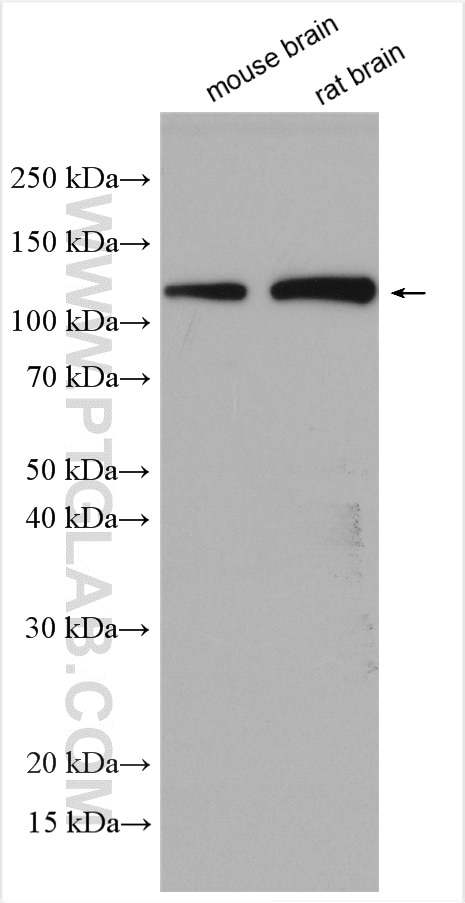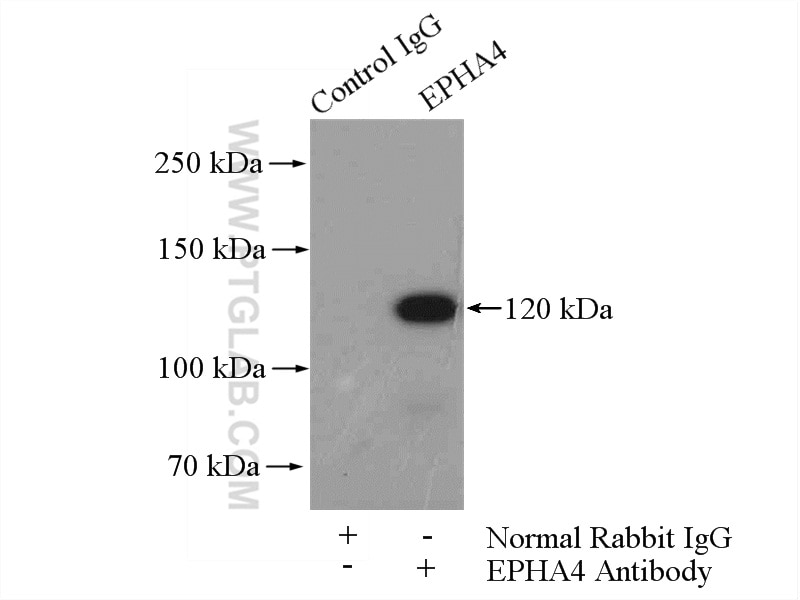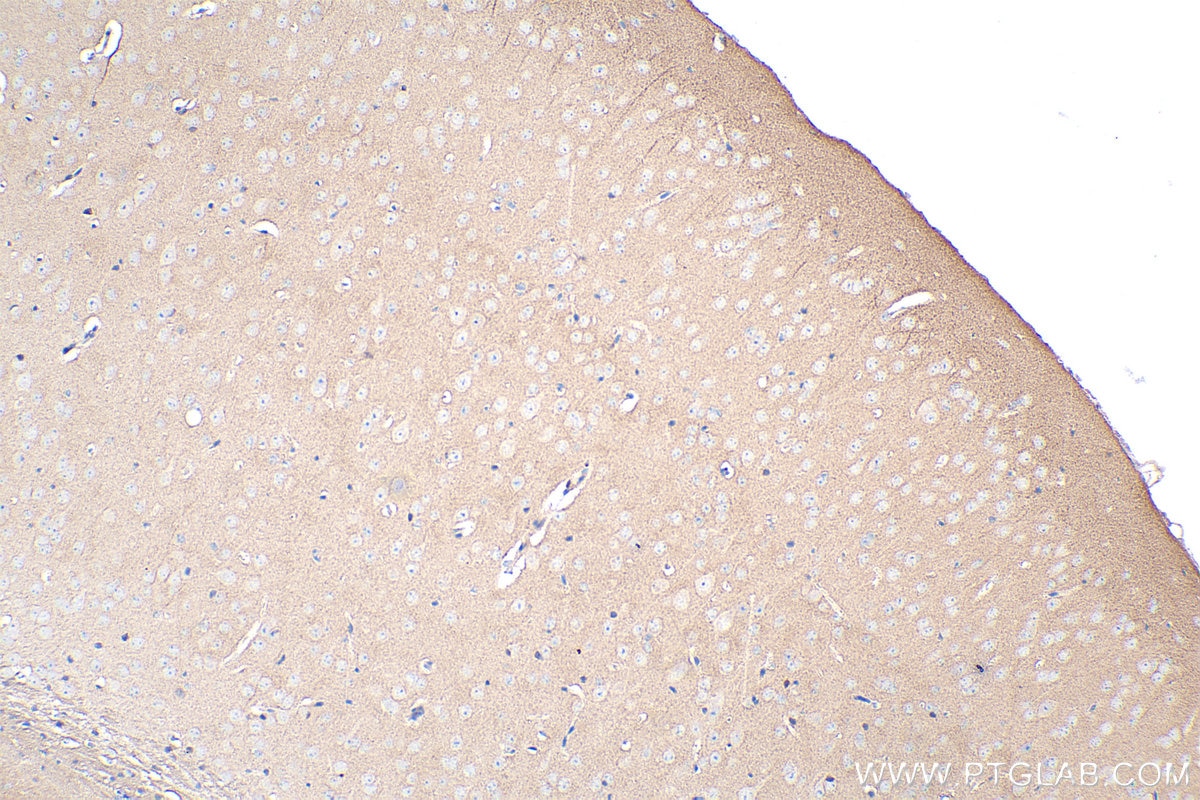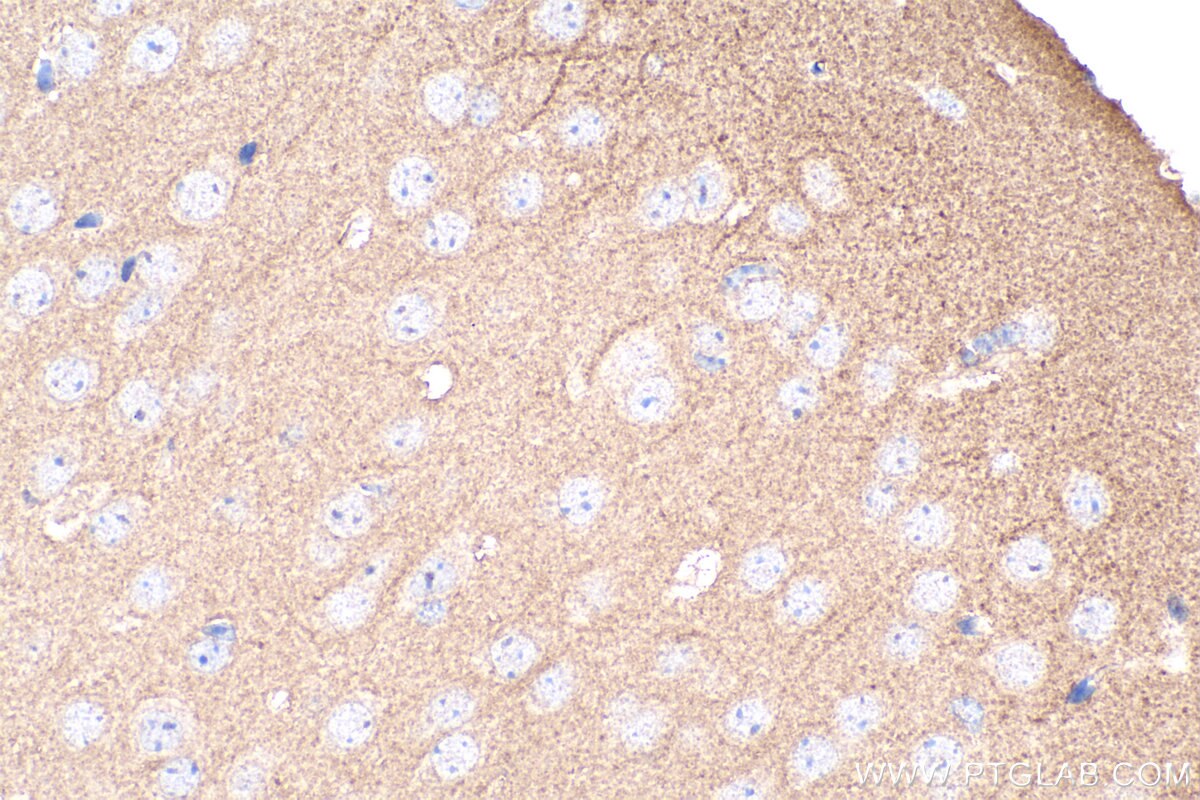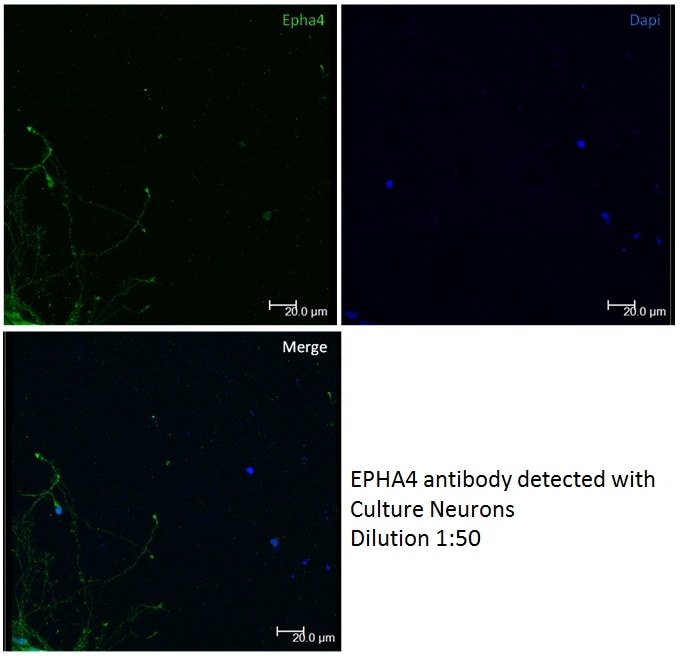Validation Data Gallery
Tested Applications
Recommended dilution
| Application | Dilution |
|---|---|
| It is recommended that this reagent should be titrated in each testing system to obtain optimal results. | |
Product Information
21875-1-PBS targets EphA4 in WB, IHC, IF/ICC, IP, Indirect ELISA applications and shows reactivity with human, mouse, rat samples.
| Tested Reactivity | human, mouse, rat |
| Host / Isotype | Rabbit / IgG |
| Class | Polyclonal |
| Type | Antibody |
| Immunogen | EphA4 fusion protein Ag16233 相同性解析による交差性が予測される生物種 |
| Full Name | EPH receptor A4 |
| Calculated molecular weight | 986 aa, 110 kDa |
| Observed molecular weight | 120 kDa |
| GenBank accession number | BC026327 |
| Gene Symbol | EPHA4 |
| Gene ID (NCBI) | 2043 |
| RRID | AB_2878936 |
| Conjugate | Unconjugated |
| Form | Liquid |
| Purification Method | Antigen affinity purification |
| UNIPROT ID | P54764 |
| Storage Buffer | PBS only , pH 7.3 |
| Storage Conditions | Store at -80°C. |
Background Information
EphA4 is a member of the Eph receptor tyrosine kinase family and has important functions in the developing and adult nervous system (PMID: 14697664). The Eph receptors comprise a large family of closely related transmembrane tyrosine kinases that actively signal when bound to their ephrin ligands. The Eph receptors are characterized by an extracellular region with a unique cysteine-rich motif extending over its amino-terminal half, followed by two fibronectin type III motifs (PMID: 9530499). They are divided into two sub-groups (EphA and EphB) based on the similarity of their extracellular domain sequences and their affinities for binding ephrin-A and ephrin-B ligands (PMID: 11114742). EphA4 is involved in commissure formation within the forebrain, axonal guidance in the corticospinal tract, regulation of the central pattern generator that provides normal locomotor function and axonal regeneration following spinal cord injury (PMID: 30061574). EphA4 has been implicated as a disease modifier of amyotrophic lateral sclerosis (ALS) (PMID: 22922411).
